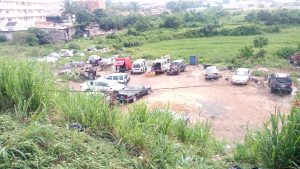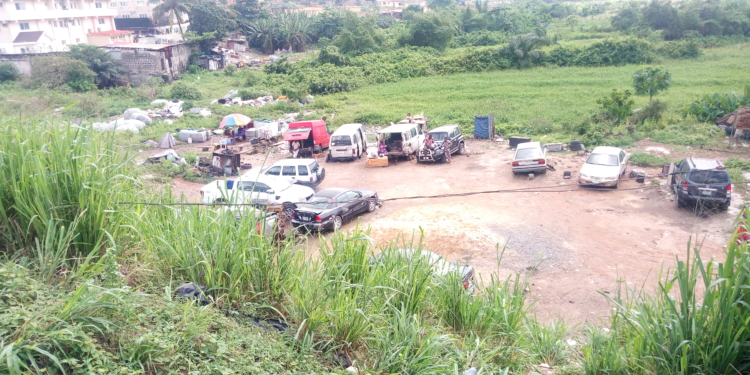Bilkis Adebiyi-Abiola, General Manager of the Lagos State Parks and Garden Agency, LASPARK, has lamented about the growing spate of wetlands encroachment in Lagos State.
Adebiyi-Abiola explained that Wetlands in Lagos State are under threat due to human activities adding that it frustrates every effort of the government to prevent flood.
The LASPARK GM made this known after a bus tour to some locations in Lagos State, to reveal wetlands encroachment and how flooding can be prevented in the state. The bus tour was facilitated by Rethinking Cities, a Non-Governmental Organization which focuses on urban development and housing.

Adebiyi-Abiola explained that “to restore wetlands in Lagos State to their natural state, LASPARK wants to embark on a pilot project by converting the wetland at Anthony which connects with Maryland to a park.”
She explained that the park was initiated after a study which was supported by Heinrich Boll Stiftung, a German NGO adding that bicycle trail would be created within the park.
Describing the wetland which is about 4km stretch from Anthony (Opposite TREM) to Maryland, she noted that “the facilities to use in the park would help to return the natural status of the wetland which would prevent flood and also serve as tourist attraction center in the state.”
During the visit to the wetland at Anthony which leads to Odo Iya Alaro Bus stop (Cain village) at Maryland, Gbogboade Seun of JustGreen, disclosed that the wetland is being encroached by recycling companies, farmers, mechanics and refuse dump.

He said there’s need for urgent actions to conserve wetland which would in return prevent flood which has turned to a menace in the state.
Giving some recommendations to address flooding in Lagos State with a case study of Adeniji Adele Estate, Ayotunde Komolafe, Project Officer at Arctic Infrastructure explained that “Lagos State government needs to provide substantial support and resources towards removing flood water and silt from the estate before any redevelopment plan can take place.”
He added that pet bottles which have blocked the drainage should be extracted and recycled. “Majority of the waste clogging the drainage channels comprises plastic bottles and nylons. An explicit recycling policy which deliberately supports small scale recycling, Industrial set-ups around locations with a high volume of pet bottles needs to be put in place”, he butressed.

